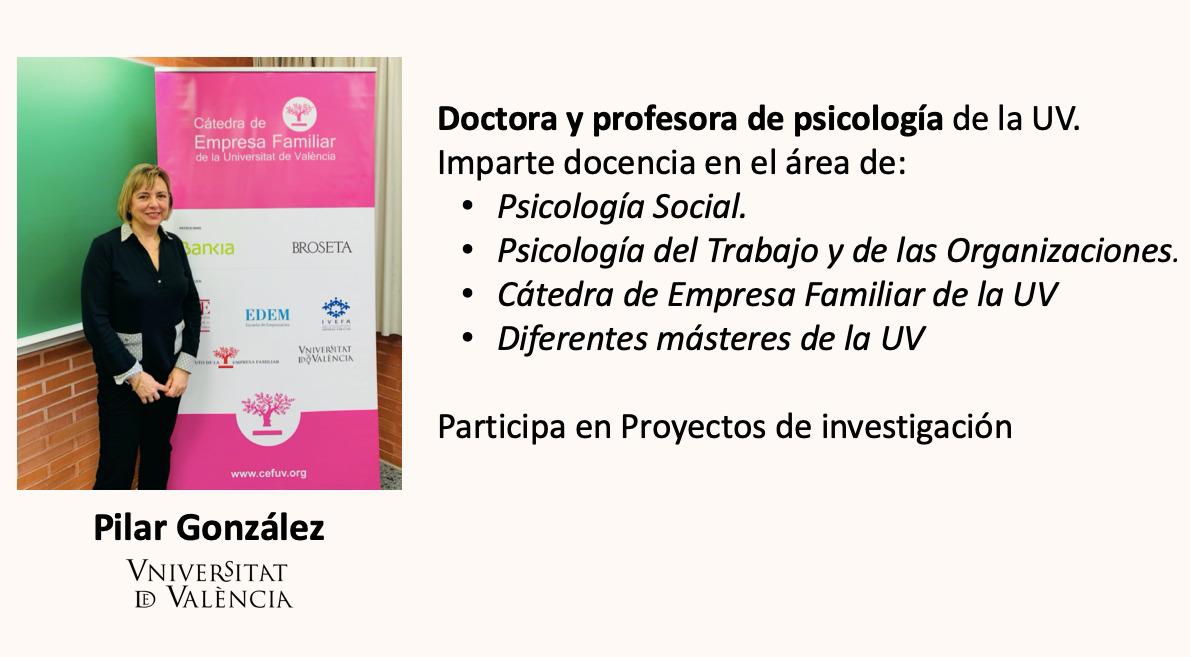Second session of the Family Business Course (12th Edition)
- Authors: (2020).
- Publication types: Recurs electrònic
- URL Publication: Second session of the Family Business Course (12th Edition)
-
Abstract:
On Friday, February 14, the second session of the Family Business Course was taught by Pilar González (link to bio in the name) of the Faculty of Psychology of the UV, dealing with the “Management of conflicts in the family business”.
- Scarce Resources
- Disagreement in procedures and Rules
- Activity and work unit
- Difference of values and perceptions
In this 2nd session of the course, Professor Pilar González showed students the techniques and tools to achieve a positive management of internal conflicts with the company. The session was divided into 2 blocks: Contextualization of the conflict and Negotiate and mediate.
The session began by explaining how conflicts arise, these being due to real or perceived differences between parties. The importance of the subjective factor in the origin of the conflict was stressed, without forgetting an objective basis.
In a very participatory session, Pilar had the collaboration of the students to find those factors that help us to perceive that there are conflicts (bad working environment, poor communication, delayed decisions, internal and external complaints ...) and challenged the vision Traditional conflict as a purely negative element.
In the central part of the session we had a group exercise to understand the 4 potential sources of the conflict:
In this activity the different groups prepared and commented on some experiences (real or fictitious) in which conflicts of different origin appeared. Through the exposure of visible symptoms, students tried to find the Potential Sources of Conflict that underlie. The importance of asking all possible questions to find non-visible information and improve the analysis of the causes of the conflict was demonstrated.
Subsequently, the second block began visualizing the 5 forms of basic action in conflict situations: Collaboration, Servilism, Commitment, Competitiveness and Avoidance. It was emphasized that these forms of action are more or less optimal according to the real scenario in which we find ourselves.
The session concluded with an explanation and implementation of several negotiation tools that have proven successful. He stressed the importance of active listening and assertive language for optimal communication and communication and approach problems of the solutions that most limit a good negotiated resolution of conflicts.
Next week we will have María Beltrán (FIBAC consultant) and Juan Vicente Tamarit (director of Alba Horneados) to talk about ‘Emotions and Shared Culture’ and ‘Career development in Family Businesses’.









